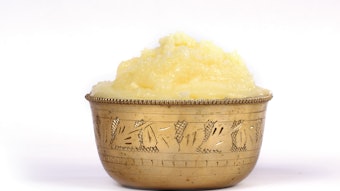From www.CosmeticsandToiletries.com E-newsletter
Really, it is all about sex!
With these opening words, a marketing colleague once opened his speech to senior management and he was right in two aspects—it is all about sex, and he had grabbed their attention in the same way that I now have yours. Actually, to correctly quote my marketing colleague, the personal care industry “is all working in the sex industry.”
Although I hate to admit this, my collegue was right. The cosmetic industry is an industry that helps people look good. From an evolutionary point of view, the human purpose in life is to produce offspring. Although it can be done clinically via in-vitro fertilization, just like today's cosmetic consumers, most people prefer the natural but not necessarily safer way of creating offspring.
Again, speaking in evolutionary terms, before a man would decide to procreate, he will carefully evaluate whether his offspring will flourish with his potential mate. Although the modern man could ask for a genetic footprint of his potential mate before making up his mind, the early hominid hunters that once inhabited the plains of what is now Northern Kenya around Lake Turkana had neither the time nor the technology. Today, Northern Kenya is a perfect breeding ground for the Nile crocodile, the hippopotamus and a variety of venomous snakes—and the situation probably was not much better 1.8 million years ago.
All that our hominid hunters could rely on was their instinct and that simply had to be good. If a woman had a symmetrical face and had the right proportions, she should be able to carry a child, survive childbirth, feed the child and raise it. So beauty was simply essential for staying alive. My point here is that bodily beauty is linked to sex hormones but beware, there are surprising distrubances related to this link.
For years, I have been investigating skin moisturization, placing my corneometer on nearly every surface I could find. I measured neat raw materials applied to female and sometimes male skin. I also measured formulations and even the influence of production procedures, such as the influence of droplet size, on skin moisturization. The conclusion was a bit worrying because almost everything turned out to moisturize human skin.
There is a distinct correlation between beauty and skin moisturization. If everything moisturizes human skin, humans should all have less wrinkles and should have no problem finding partners. But when thinking in terms of evolution, most women produce their offspring before they even see wrinkles, so antiaging cosmetics to maintain and re-claim beauty occur after the fact.
Going back to cosmetic science, I used to perform some skin moisturization experiments with near infrared spectroscopy. My colleagues and I were able to measure water in the skin non-invasively but we found that there was a link with some other peaks that we had not yet identified. Because one peak was more dominant in all spectra originating from men, and another was more dominant in all spectra obtained on women, we ordered some estrogen and testosterone and measured these chemicals.
Low and behold, the peak more prominent in the spectra of the male volunteers coincided with the peak of testosterone, whereas the peak more prominent in the spectra of the female volunteer coincided with that of estrogen. We were, however, interested in water in the skin and not primarily in sex hormones levels. That changed when we tried to correlate the presence and surface area of the water peak to that of other peaks.
We found that in men there was a good correlation between estrogen levels and the amount of water in skin, especially for the non-smokers, whereas the correlation with testosterone levels was reasonable at best. This meant that a male's "femininity" determined his skin hydration levels that subsequently determine, among other things, how well his skin looks. If a male smokes, his testosterone levels go up and his estrogen levels go down; thus, his skin hydration is reduced and his skin looks roughly 15 years older.
For women, the picture was very different. Female water levels in the skin correlated reasonably with their estrogen levels, but the correlation was not as high as in men. Strangely enough, the correlation with testosterone was completely absent. In evolutionary terms, women generally did not prefer macho guys—a little bit of feminism or sensitivity in a man was preferred since it ensured women that he would not go crazy and try to kill a lion in front of his male friends. Ancient women preferred to have a caring mate that would defend his family over a mate trying to impress his friends.
Changing estrogen levels and their effect on skin moisturization also correlate to menopause. When menopause occurs, estrogen levels and skin moisturization sharply decrease, creating wrinkles. Evolutionally speaking, this occurs because female body does not expell so much energy on maintaining the skin's condition to look good in order to reproduce. Instead, the body is changing (and preparing for grandchildren).
Sex hormones definitely play a role in skin moisturization but the title of this column is that it really is all about sex. This can be proven in the lab with NIR equipment. Colleagues and I also measured seven pregnant women in the laboratory—and they must have had the best moisturized skin that our lab ever measured. Strangely enough, their water levels were not correlated to their estrogen levels or to their levels of testosterone but to the ratio of estrogen over testosterone.
So, finally I am there: The best skin moisturizer turns out to be pregnancy. Really, it is all about sex. As a man who could never become pregnant, I could never have skin that looks as good as a pregnant woman. All I can do is keeping on trying … after all, it’s all about sex!
-Prof. Dr. Johann W. Wiechers
Technical Advisor, Allured Publishing
Independent Consultant for Cosmetic Science
JW Solutions, Gasthuispolderweg 30 2807 LL Gouda, Netherlands
[email protected]










